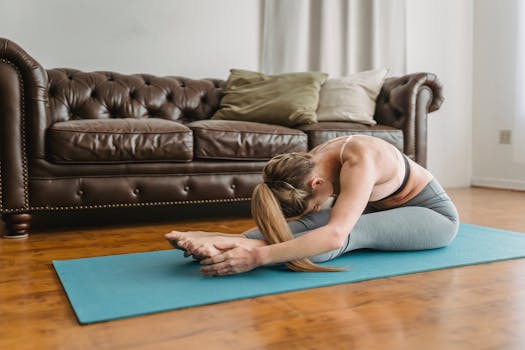Unlocking Your Mind: The Surprising Connection Between Physical Fitness and Mental Clarity
Takeaways: Physical fitness isn’t just about the body; it’s also about the mind. Regular exercise can enhance mental clarity, boost mood, and increase productivity. Let’s explore how you can harness the power of fitness for a sharper mind.
Hey there! Have you ever had one of those days where your mind feels like a foggy mess? You know what I mean – you sit down to work, and instead of getting things done, you find yourself scrolling through social media or staring blankly at your screen. Well, I’ve been there too, and I’ve discovered that one of the best ways to clear that mental fog is through physical fitness.
The Mind-Body Connection
Let’s kick things off by talking about the incredible mind-body connection. You might think of your brain and body as two separate entities, but they’re actually best friends! When you exercise, your body releases endorphins, those feel-good hormones that can uplift your mood and reduce stress. This is the reason why a jog or a workout can leave you feeling euphoric.
But that’s not all. Physical activity increases blood flow and oxygen to the brain, leading to improved cognitive function. I’ve noticed that on days when I hit the gym or go for a run, I’m more focused and creative. It’s like my brain gets a little boost, and ideas start flowing more freely. Plus, regular exercise can help ward off mental fatigue, so you’re less likely to feel overwhelmed by your to-do list.
How Fitness Fuels Mental Clarity
Now, you might be wondering, how does this all translate to mental clarity? Well, let’s break it down. When you engage in physical activity, you’re not just getting your heart pumping; you’re also engaging in a form of mindfulness. Think about it: when you’re working out, whether it’s yoga, running, or lifting weights, you’re often focused on your movements and your breath. This focus can be incredibly grounding, helping to quiet the mental chatter that often distracts us.
In my own experience, taking a break to exercise gives me the mental space I need to sort through my thoughts. When I step away from my desk and go for a walk, I often return with fresh ideas and a clearer perspective on whatever I was struggling with. It’s like hitting the refresh button on my brain!
Additionally, maintaining a regular fitness routine can lead to better sleep. And we all know that a good night’s sleep is essential for mental clarity. When you’re well-rested, you’re more alert, more focused, and better equipped to tackle challenges. It’s a beautiful cycle: exercise leads to better sleep, and better sleep enhances your ability to think clearly.
Practical Tips to Combine Fitness and Mental Clarity

- Start Small: If you’re new to exercise, don’t overwhelm yourself. Start with short workouts or even brisk walks. Every little bit counts!
- Find What You Love: Whether it’s dancing, hiking, or hitting the gym, choose activities that you genuinely enjoy. This makes it easier to stick with your routine.
- Schedule Your Workouts: Treat your fitness sessions like important meetings. Block out time in your calendar to ensure you prioritize this for your mental health.
- Mix It Up: Variety keeps things interesting! Try different workouts to keep both your body and mind engaged.
- Practice Mindfulness: Incorporate mindfulness practices, such as yoga or meditation, into your fitness routine. This can enhance the mind-body connection even further.
By weaving physical fitness into your everyday life, you’ll not only boost your health but also enhance your mental clarity. It’s a win-win situation!
FAQs
1. How often should I exercise for mental clarity?
Aim for at least 150 minutes of moderate aerobic activity each week, along with strength training on two or more days. Consistency is key!
2. What types of exercise are best for mental clarity?
Activities that get your heart rate up, like running, cycling, or even dancing, can be great. Mindfulness practices like yoga are also beneficial.
3. Can I improve my mental clarity without exercising?
While exercise is a powerful tool, other factors like a balanced diet, adequate sleep, and stress management techniques also play a significant role.
4. What should I do if I don’t enjoy traditional workouts?
Explore different types of movement! Hiking, swimming, group classes, or even playing sports can be fun alternatives to traditional exercise.
5. How long does it take to see improvements in mental clarity from exercise?
Many people notice a difference after just a few workouts, but the more consistent you are, the more significant the long-term benefits will be.






